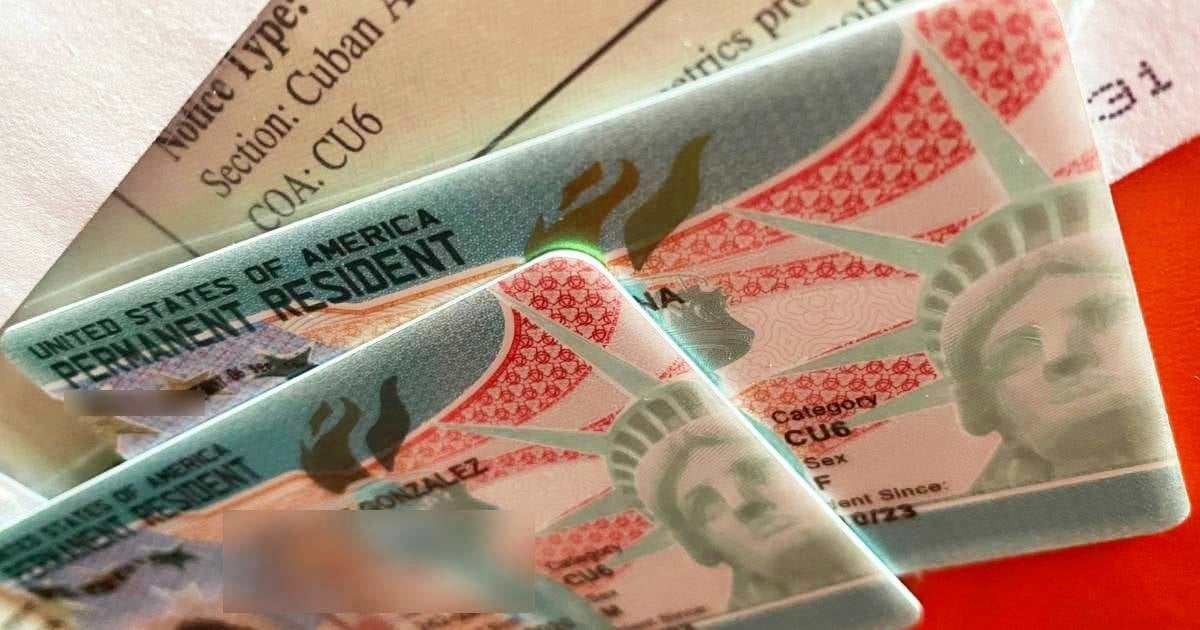In recent days, a growing number of immigration lawyers have been raising alarms about a potential risk that many U.S. permanent residents may not be aware of: signing Form I-407 upon re-entering the country could lead to the permanent loss of a Green Card. Holding a legal permanent residency in the United States does not provide absolute protection against deportation processes.
There are scenarios where a resident can lose their status, even without committing serious crimes, and one of the most perilous is signing this form. Immigration attorney José Jordán recently highlighted an increase in cases where legal residents are losing their residency after being persuaded to sign this form when returning to the U.S. through a border or airport.
"We are witnessing a significantly higher number of individuals relinquishing their residency at the border. People leaving and returning are put in a room by border police, and they are convinced to renounce their residency by filling out Form I-407," Jordán stated in a report by Telemundo 51. The lawyer emphasized that signing this document is seen as a voluntary renunciation, even if done under pressure or without full understanding of its consequences.
Understanding Form I-407
According to the U.S. Citizenship and Immigration Services (USCIS), Form I-407, or the Record of Abandonment of Lawful Permanent Resident Status, is a document through which a person formally notifies the U.S. government of their decision to relinquish their lawful permanent resident (LPR) status. This form can be given to a Customs and Border Protection (CBP) officer at a U.S. entry point or mailed to USCIS. If a person refuses to sign it, officials cannot assume their abandonment, thereby maintaining their legal status.
Policy Changes and Detention Risks
Jordán pointed out that immigration policies have shifted, especially following President Donald Trump's administration, increasing the risk of detention and deportation for many residents.
"With the new Trump administration, immigration policies have evolved, now allowing immigration agents to detain individuals in a detention center instead of giving them a notice to appear before a judge, as was done previously," the attorney explained.
The expert stressed that even if a person is detained upon entering the U.S., they should not sign the form. He advised not to succumb to immigration agents' pressure.
"You don’t have to sign any document, you don’t have to surrender your residency, and even if detained in a detention center (although nobody wants to be detained), at least you will remain a resident, and the judge will restore your residency if there are no major issues," he assured.
Who Faces the Greatest Risk of Losing Residency?
The risk of a lawful permanent resident losing their status is not limited to those with criminal records. Anyone leaving and re-entering the U.S. is subject to a new admission process, where officials can decide whether the person can retain their residency.
Jordán explained that those most vulnerable include individuals with conditional residencies, such as those who do not spend the majority of their time in the U.S., or those living in nearby countries like Mexico or Canada who cross the border for work. Additionally, those accused of crimes, even if proven innocent, can also be targeted by these measures.
Steps to Take if You Encounter Issues Re-entering the U.S.
Attorney José Jordán shared key recommendations for residents returning to the U.S.:
- Request to see an immigration judge at the port of entry.
- Do not sign any documents provided during your entry into the country.
- If detained, contact a lawyer or seek legal representation.
- If you have a criminal history or have committed any crimes, consult an attorney before leaving the country for guidance on your case.
- Educate yourself about your rights.
The lawyer also advises that legal residents should aim to become U.S. citizens as soon as the law permits, as it protects them from deportation processes.
Can They Inspect Your Cellphone or Documents?
Yes. During entry into the United States, immigration agents can inspect your documents and even your cellphone to verify your residency status in the country. These checks aim to ensure that the resident maintains genuine and lasting ties with the U.S., a crucial criterion for preserving immigration status.
Concluding Thoughts
The warning is clear: avoid signing Form I-407 without legal counsel. It could mean the irreversible loss of your U.S. residency. Stay informed, know your rights, and consider citizenship as a long-term protection strategy for your immigration status.
Common Questions About Green Card Holder Rights at U.S. Borders
What happens if I refuse to sign Form I-407?
If you refuse to sign Form I-407, your legal status as a permanent resident remains intact, as officials cannot assume abandonment without your signature.
Can immigration officials detain me at the border?
Yes, under current policies, immigration officials can detain individuals at the border instead of issuing a notice to appear before a judge.
Why should I become a U.S. citizen?
Becoming a U.S. citizen protects you from deportation processes, offering more security for your immigration status.
